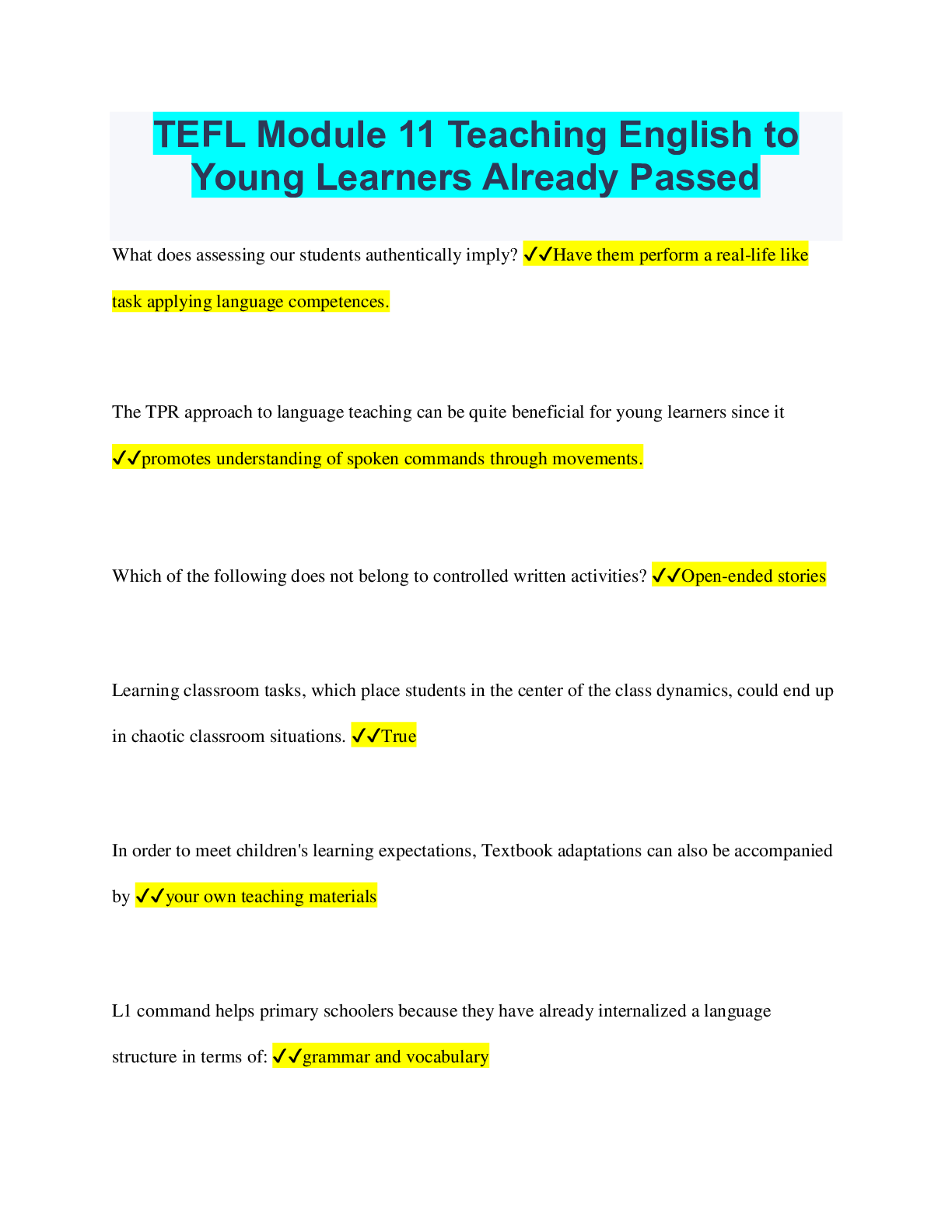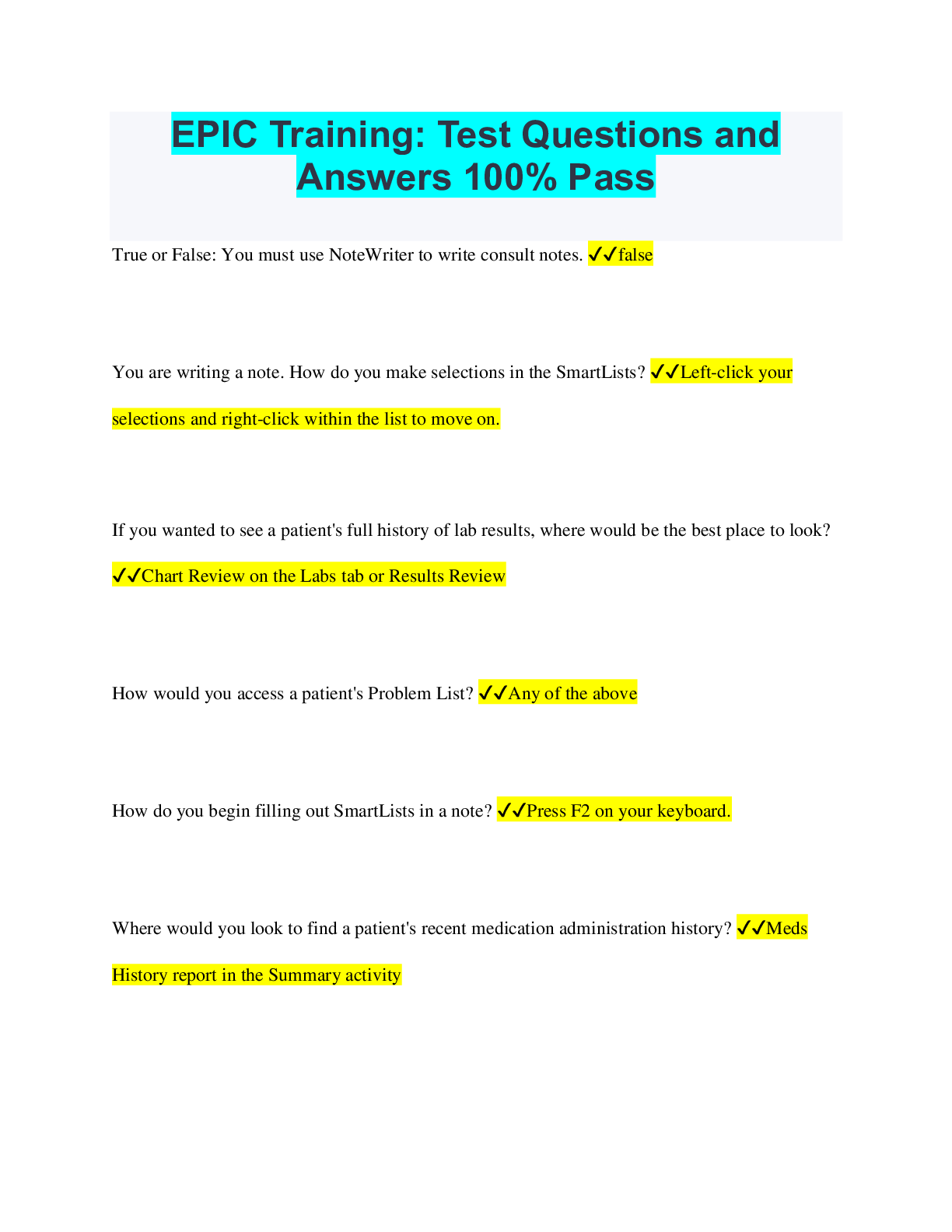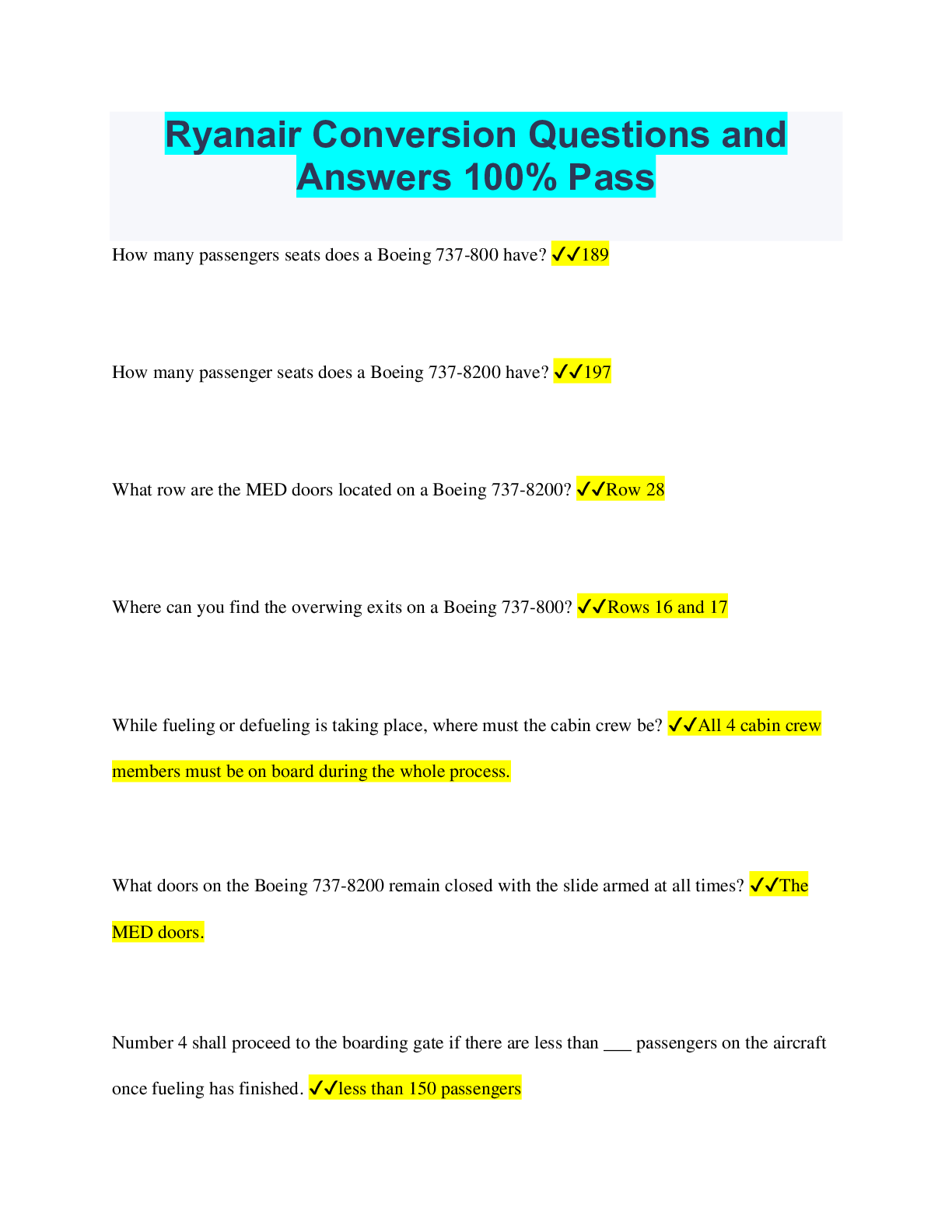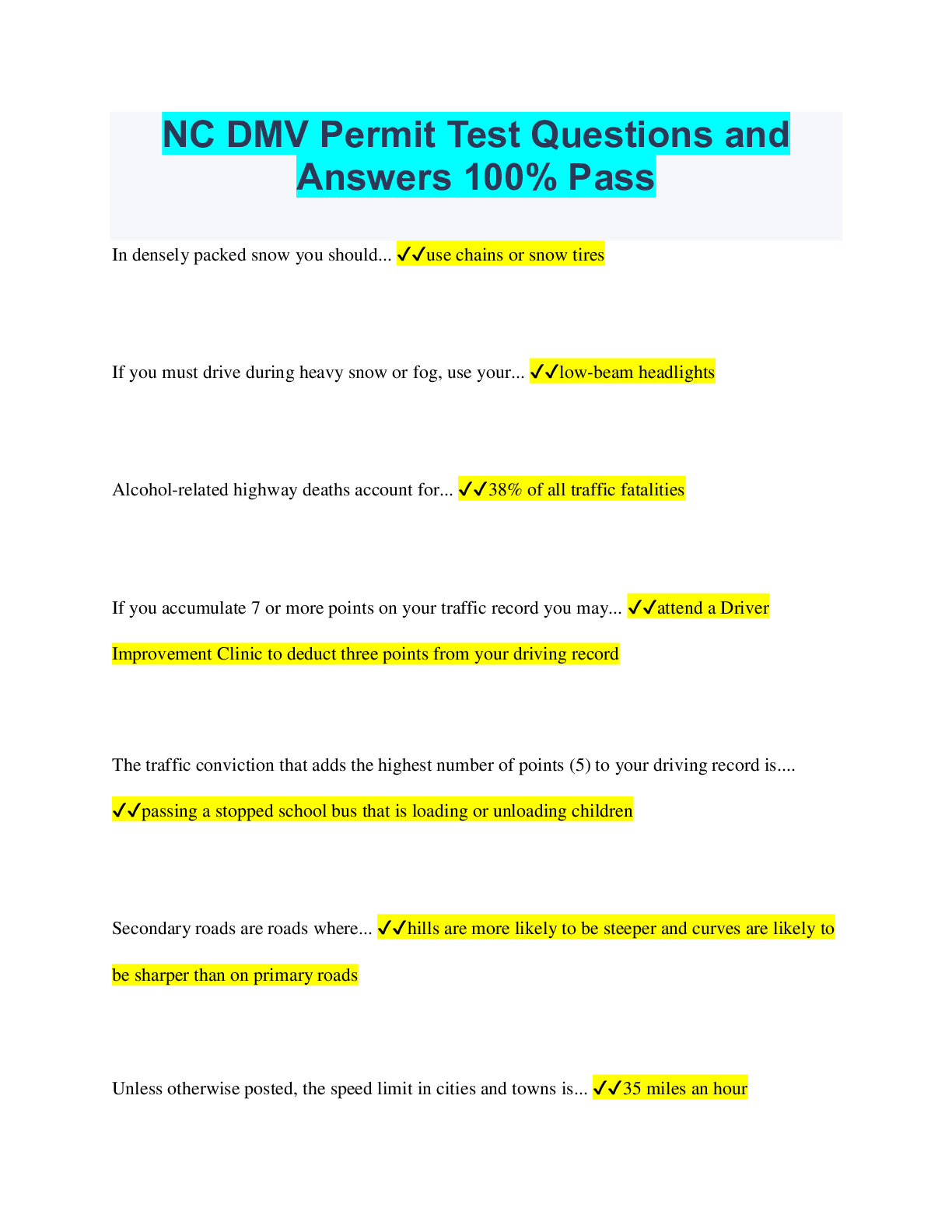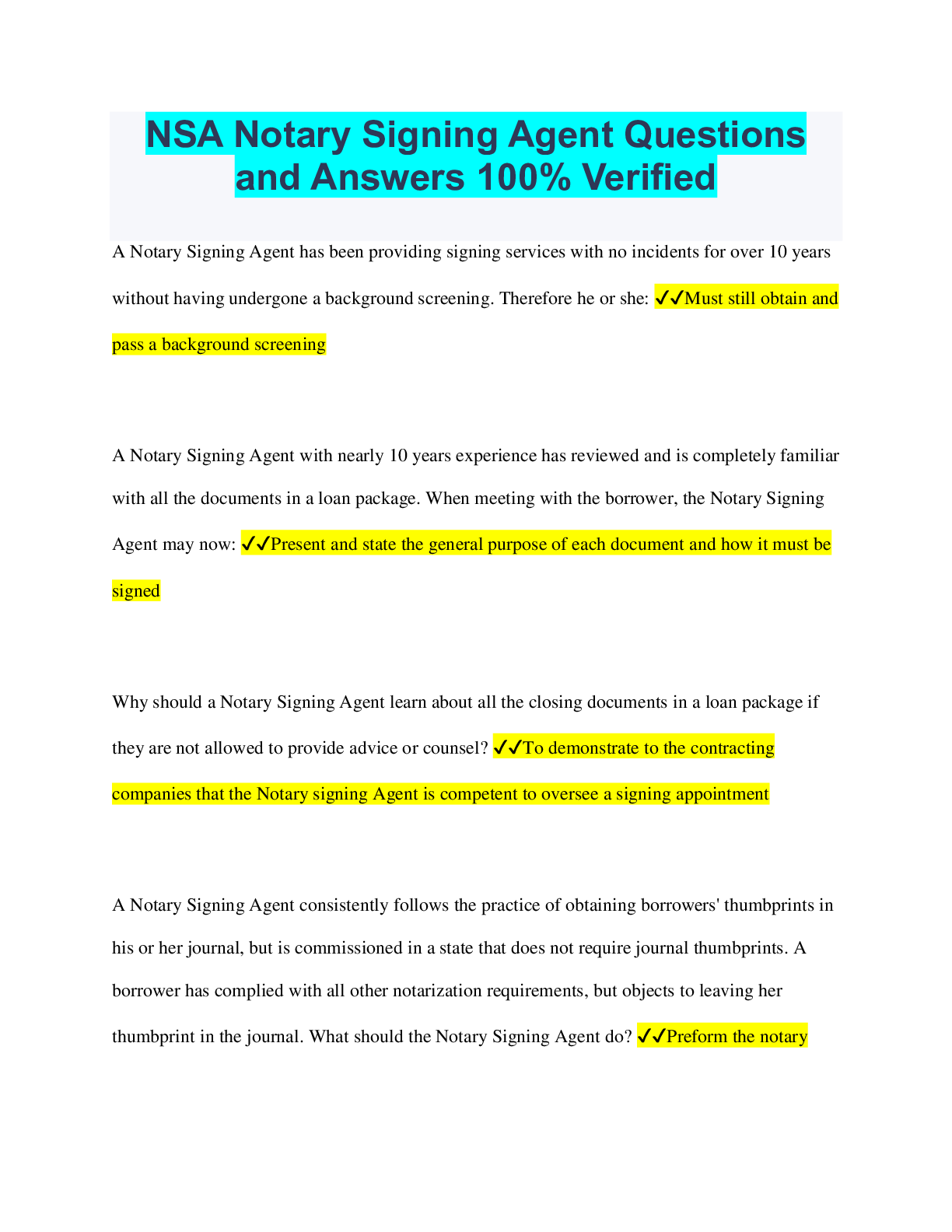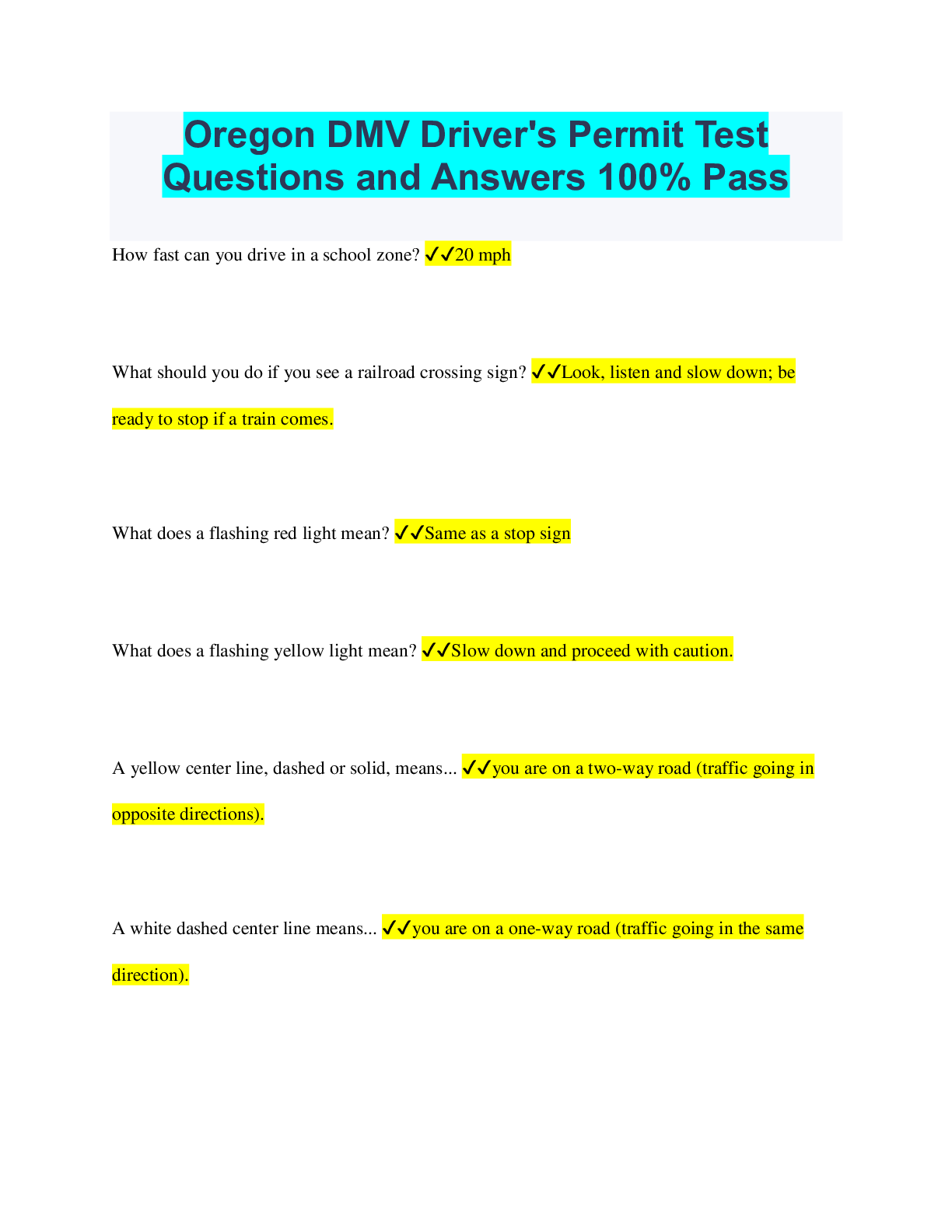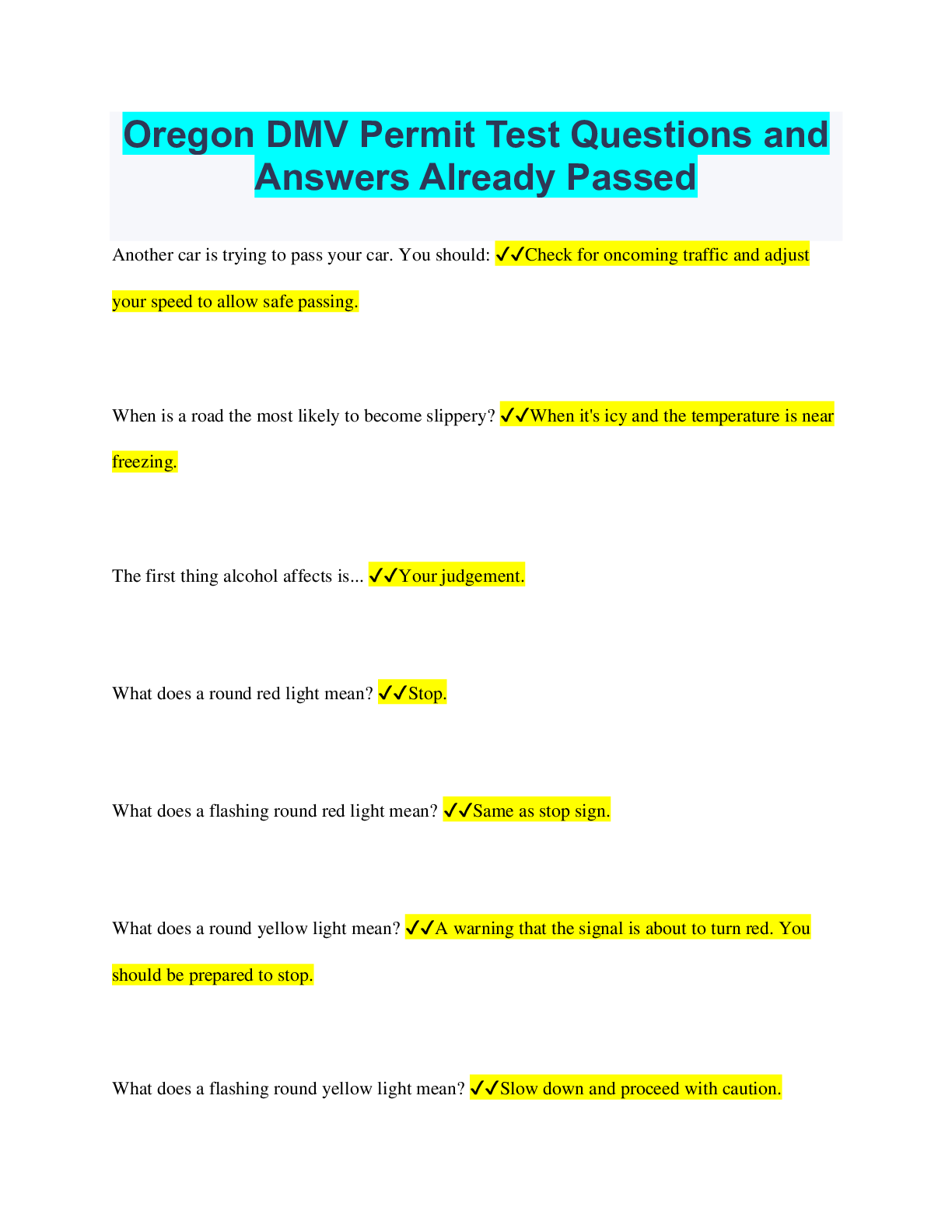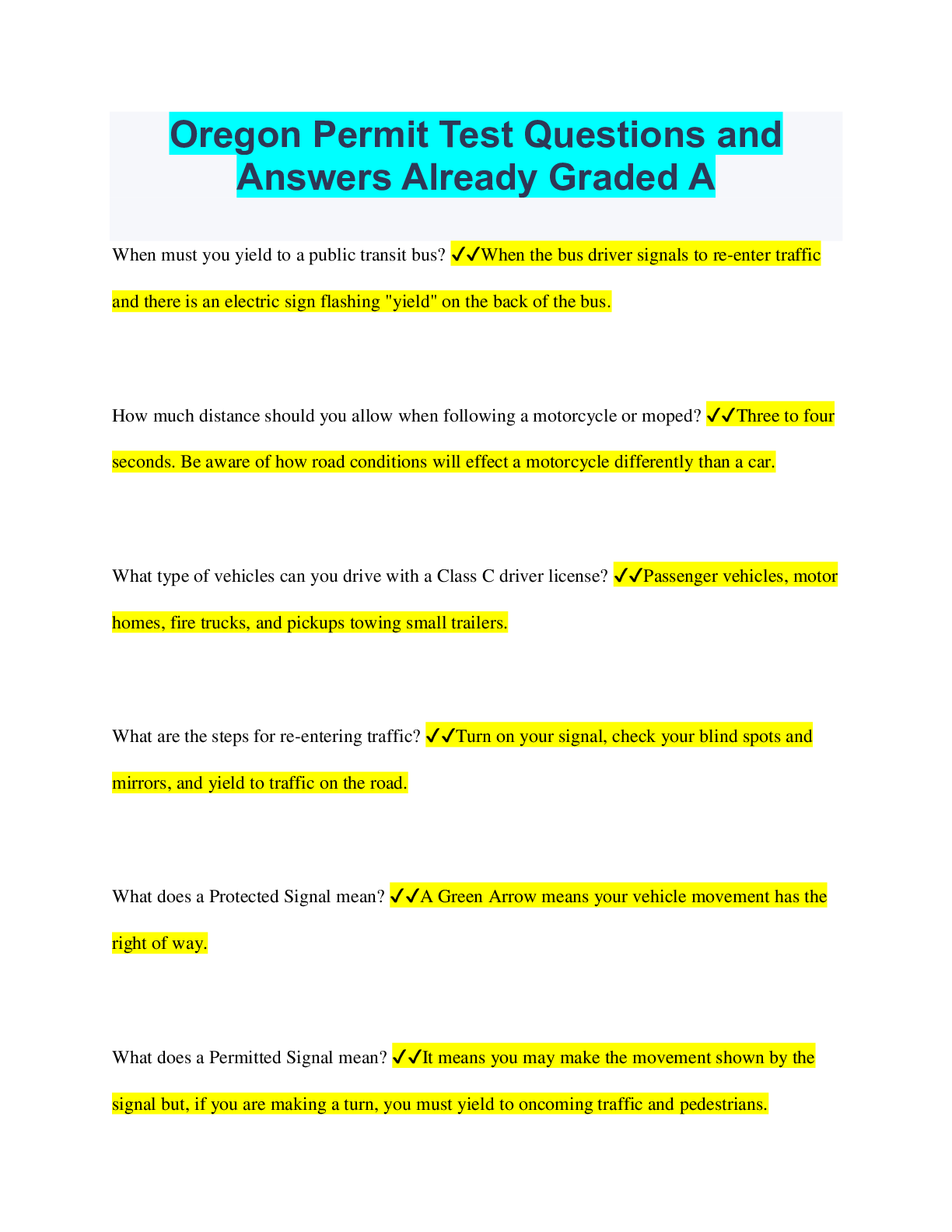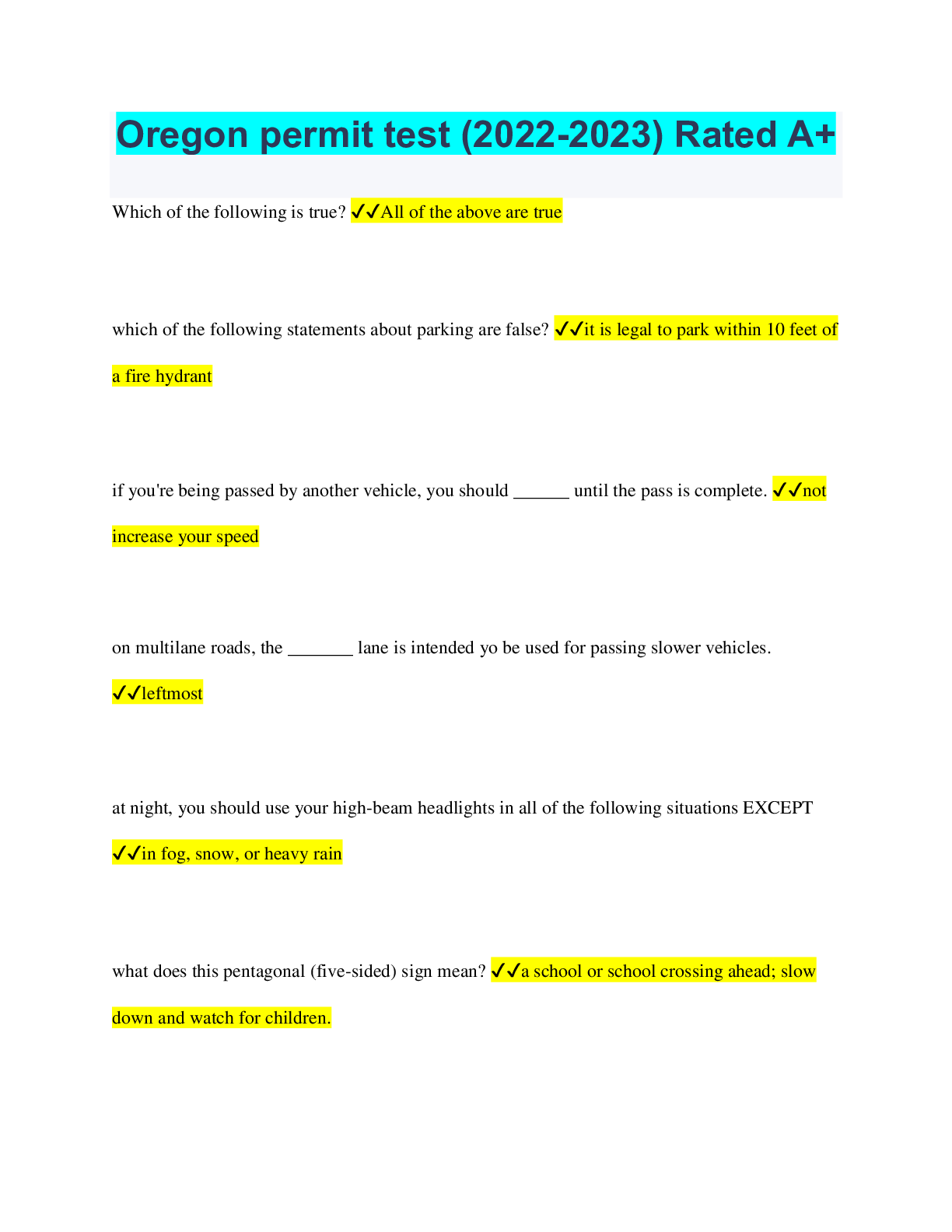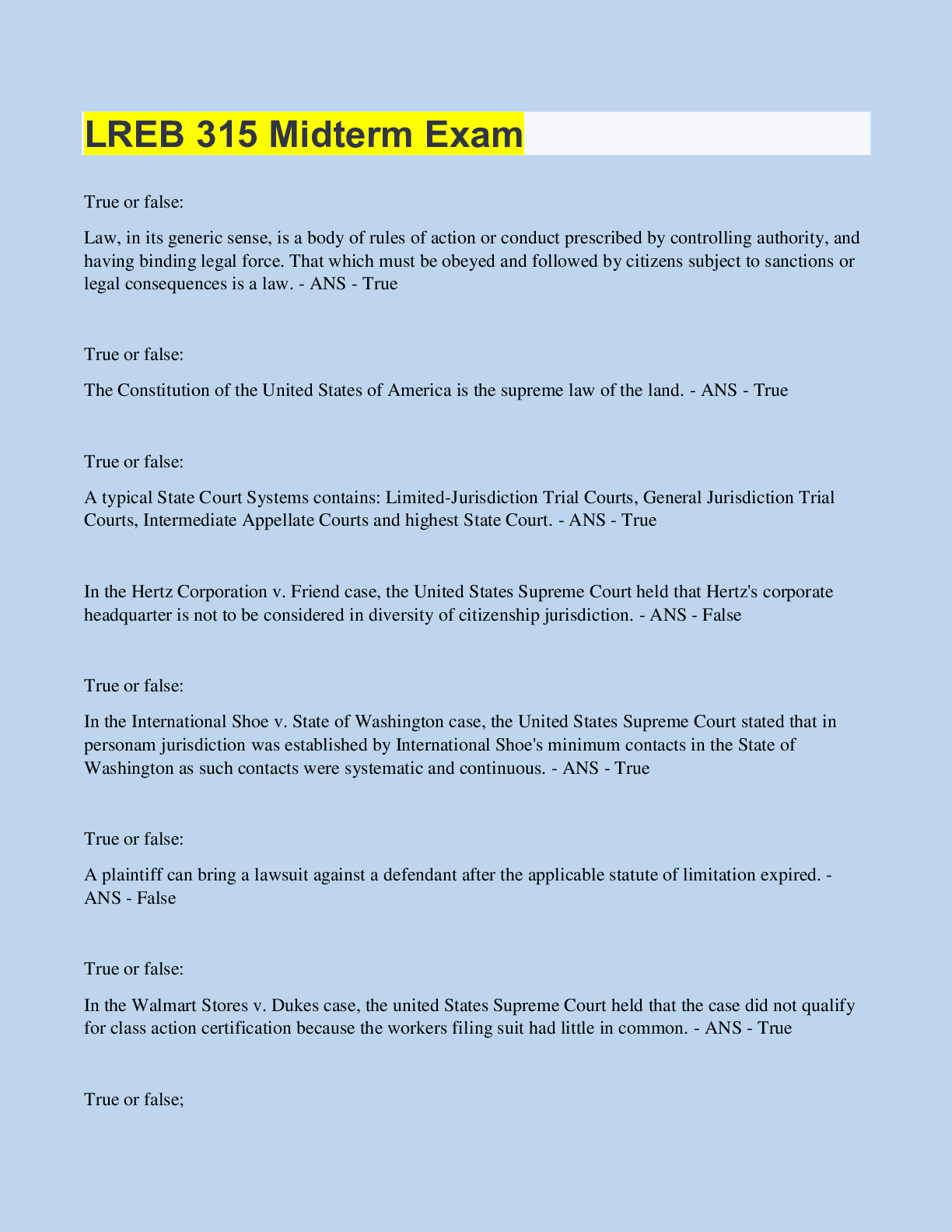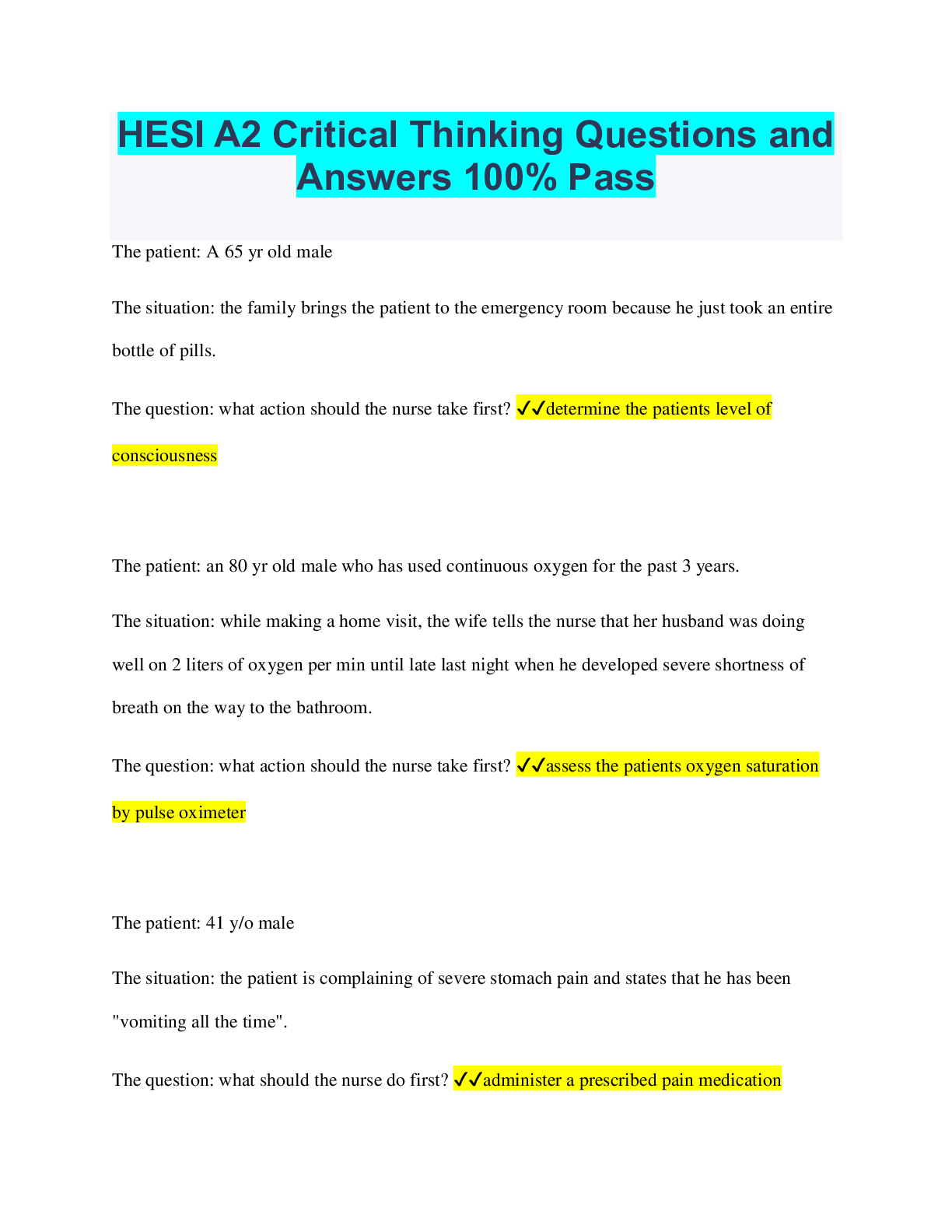Social Sciences > QUESTIONS & ANSWERS > PADI, Open Water Diver, Final Exam Review (All)
PADI, Open Water Diver, Final Exam Review
Document Content and Description Below
PADI, Open Water Diver, Final Exam Review D float. Salt water is heavier than fresh water because it has dissolved minerals in it. This means it causes more upward force (buoyancy) on an object. A... n object that is neutrally buoyant in fresh water would float in salt water because there is greater upward force. See Being a Diver I - Buoyancy and Controlling Buoyancy. - ANS - 1) If an object is neutrally buoyant (does not sink or float) in fresh water, the same object placed into salt water would A sink. B either sink or float. C do nothing. D float. B The balloon will get smaller and the air inside the balloon will be more dense (molecules move closer together). As water pressure increases, the volume of an air space will decrease. This causes the density of the air inside to increase and air molecules are pushed closer together. The balloon would get smaller and the air density inside would be greater. See Being a Diver I - Water Pressure and Air Volume Effects. - ANS - 2) I blow up a balloon, tie it off, and take it to the bottom of the swimming pool. What will happen to the balloon and the air inside it? A The balloon will get bigger and the air inside the balloon will be less dense (molecules move further apart). B The balloon will get smaller and the air inside the balloon will be more dense (molecules move closer together). C The balloon will get bigger and the air inside the balloon will be more dense. D The balloon will get smaller and the air inside the balloon will be less dense. A become half the size it was at the surface. At 10 meters, the pressure is 2 bar. An air volume taken to this depth from the surface would decrease and become half the size. See Being a Diver I - Water Pressure and Air Volume Effects. - ANS - 3) I turn a glass upside down, trap the air in it by putting it in water, and then I take the glass down to 10 meters. The air space would A become half the size it was at the surface. B not change in size. C become 1/3 the size it was at the surface. D become 2/3 the size it was at the surface. C A cold, allergy or another medical problem. A cold, or any congestion, can block air passages in your ears and sinuses, making equalization difficult or impossible. See Being a Diver I - The Effects of Increasing Pressure on Body Air Spaces. - ANS - 4) If I am not able to equalize (clear) my body air spaces, it may be because I have A seasickness. B heart disease and high blood pressure. C a cold, allergy or another medical problem. D anxiety. C I am feeling a squeeze and need to equalize. Pain in your ears or sinuses means that they aren't equalized. Stop your descent and ascend slightly to relieve pressure on your ears. Then attempt to equalize again. If you can't equalize, end the dive. See Being a Diver I - The Effects of Increasing Pressure on Body Air Spaces. - ANS - 5) If my ears or sinuses hurt while I am descending (going down), it usually means A my air spaces are equalized. B my mask strap is too tight. C I am feeling a squeeze and need to equalize. D my mask is too small. B In the triangle area formed by my chin and the lower corners of my rib cage. Your alternate air source attaches with a quick release in the triangle area formed by your chin and the lower corners of your rib cage. Avoid letting your alternate air source dangle unsecured from your kit. See Equipment I - Regulators. - ANS - 6) The best place for me to position an alternate air source is A loose by my side so I can find it fast. B in the triangle area formed by my chin and the lower corners of my rib cage. C to the base of my cylinder. D to the back of my BCD between my shoulder blades and waist. D Holding my breath while scuba diving. Blocking off your lungs by holding your breath and ascending could cause them to overexpand and rupture, which is a serious injury that could result in paralysis and death. Breathing continuously while scuba diving keeps air passages open allowing expanding air to escape. See Being a Diver I - The Effects of Decreasing Pressure on Body Air Spaces. - ANS - 7) Lung overexpansion injuries can be caused by A scuba diving without a buddy. B continuing a dive when not properly weighted. C not drinking enough water before scuba [Show More]
Last updated: 2 years ago
Preview 1 out of 28 pages

Buy this document to get the full access instantly
Instant Download Access after purchase
Buy NowInstant download
We Accept:

Reviews( 0 )
$10.00
Can't find what you want? Try our AI powered Search
Document information
Connected school, study & course
About the document
Uploaded On
Oct 13, 2022
Number of pages
28
Written in
Additional information
This document has been written for:
Uploaded
Oct 13, 2022
Downloads
0
Views
119


